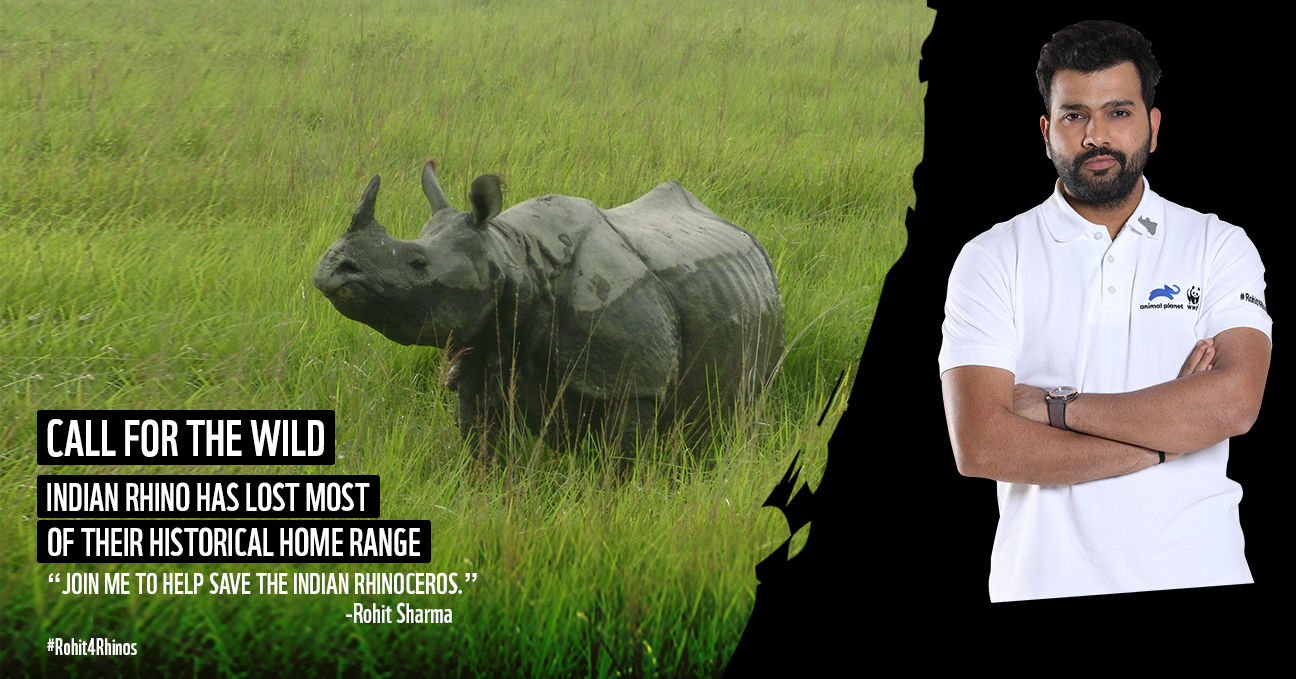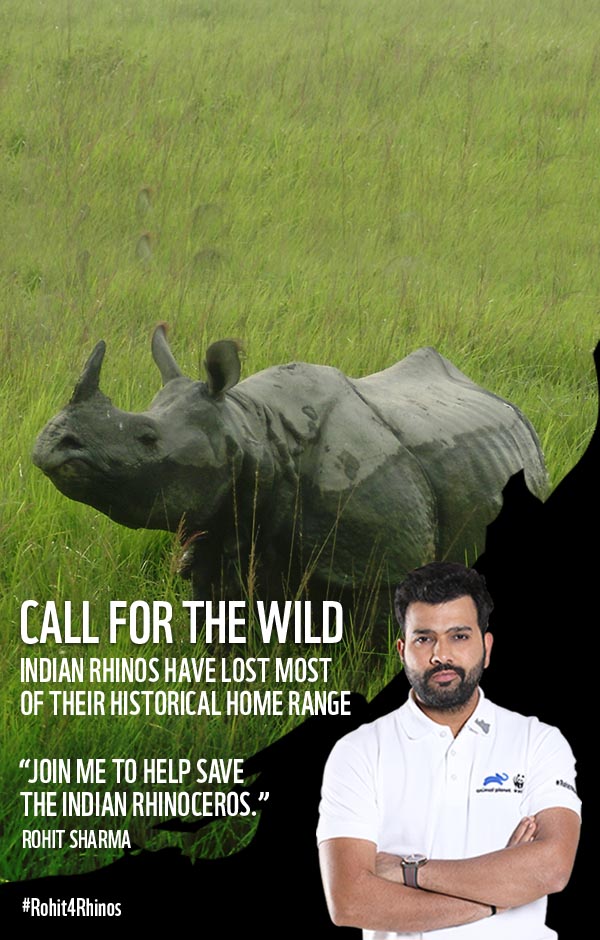Help change the story with WWF India
Tagged vulnerable by the IUCN, poaching and habitat loss is the primary reason the Indian greater one-horned rhinoceros has been wiped out from most parts of the world, leaving a total population of just around 3500 individuals, with 82% of them found only in India. These solitary creatures - who are gardeners and keepers of grasslands - are slaughtered and poached for their horn carelessly.
WWF India teams have been working tirelessly since close to 5 decades to protect the Indian rhino. With the Indian Rhino Vision (IRV2020), WWF India is working with the government of Assam and other partners to increase the population from about 2500 to 3000.
Join Rohit Sharma & WWF India to build a future for the Indian rhinoceros.
YES, I WOULD LIKE TO JOIN ROHIT'S CAUSE
All donations to WWF-India are eligible for 50% tax relief under section 80G of the Income Tax Act,1961.
How will your contribution help save the Indian rhino

Healthy homes for rhinos
Healthy habitats means healthy homes for the entire rhino population. The funding goes towards monitoring key parameters to conserve precious grasslands and wetlands in Assam.

Inspiring communities to co-exist peacefully with rhinos
Local communities are one of the most important stakeholders for helping to protect rhinos. Resources are required to run educational & awareness programmes for communities living around National Parks and Wildlife Sanctuaries, as well as creating additional programmes to strengthen livelihood programmes

Help stop rhino poaching
Poaching of rhinos for their horn and other body parts has been one of the biggest threats for the species. The funds gathered will be channeled to enhance the security and enforcement measures to protect the wild animal. These include building the capacity of the Forest Department staff, deploying sniffer dogs, use metal detectors, and promote use of cutting edge technology and tools, among others to reduce poaching instances.

Translocation of Rhinos
Since the Indian rhinos are confined to 10 sites, they run with the risk of diseases, inbreeding and mass mortality. Moreover, 90% of the Indian rhino is found in the Kaziranga National Park, exposing them to the risk of inbreeding, and consequently diseases & mass mortality. Funds will be used to carry out wild-to-wild translocation process of rhinos. This helps to rebuild a healthy breeding population of rhinos in another Protected Area, thus preventing chances of inbreeding and outbreak of disease.




